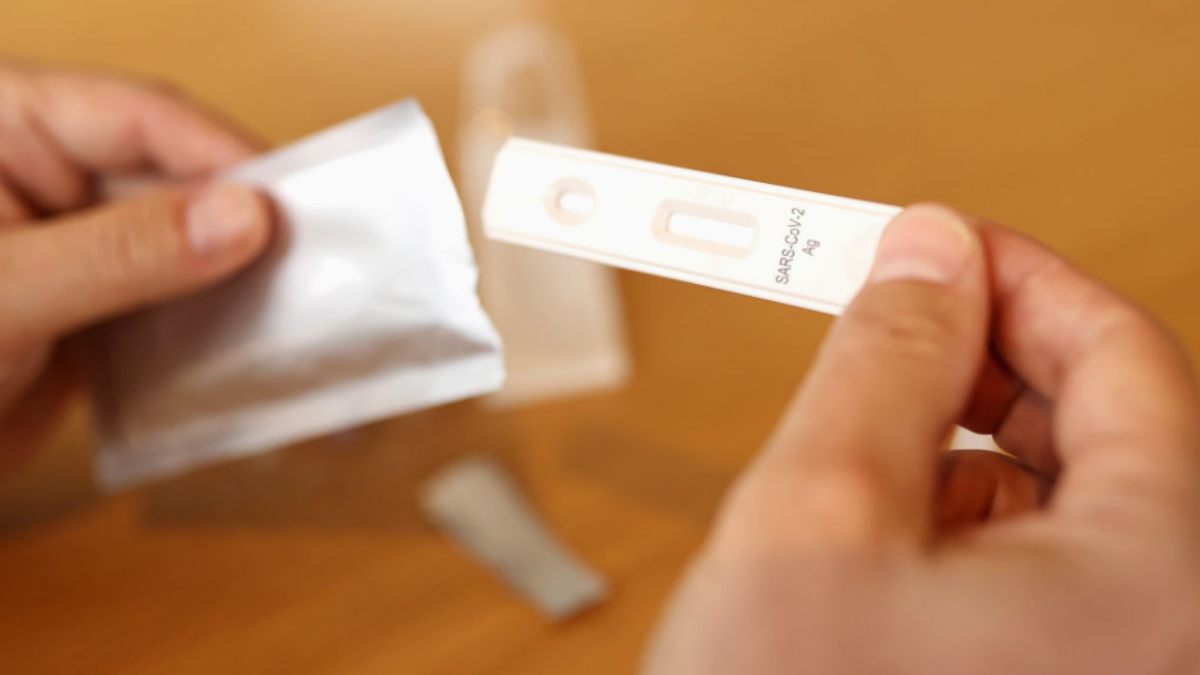
Christmas is coming and I’m praying that on the 12th day my true love doesn’t give me COVID.
None of us want to accidentally infect our loved ones this festive season, but as NSW broke a new daily record today with 3763 cases, the lines at the test sites and wait times for results nationwide are bonkers.
We have access to PCR tests (polymerase chain reaction tests) as well as rapid antigen tests (also known as lateral flow tests) to detect SARS-CoV-2, the virus that causes COVID.
So would a rapid antigen test be enough to keep Chrissy COVID-free? In this crunch time before Christmas, there are obvious pros and cons to both.
PCR test — Pros
PCR tests are used in many scientific applications, but our COVID testers use them to look for SARS-CoV-2 genetic material, which is then copied and copied billions of times to the point where it’s able to be detected. They’re up to 99 per cent accurate because they’re able to detect the virus from even the tiniest amount of it on your sample.
PCR test — Cons
The biggest con of the PCR test is that it takes a while. Because laboratories use machines that process multiple samples at once, each batch takes around six hours from when it’s put on the plates to when the result is evident.
The samples are also not tested on site. Depending on the site you visit, the labs responsible for the testing will do a couple of pick ups a day. So even if you arrive at say, noon, you may have just missed the morning pick up and your sample won’t be collected until the site closes at 5pm.
Right now, everyone has the same idea to get tested before the holidays and Christmas lunches. For some it’s a requirement of interstate travel, for others they’re getting pinged left, right and centre as the Omicron outbreaks in NSW, ACT, QLD and SA grow.
Some testing sites in Melbourne are reaching capacity before they even open for the day, while others in Sydney don’t return results for up to five days.
There have been countless anecdotes of people lining up for up to eight hours, and even members of our own editorial team have waited up to four hours for tests this week.
Rapid antigen tests — Pros
Rapid tests are incredibly quick and easy to use.
These tests look for virus proteins, instead of genetic material.
You give your nostrils a lil gentle swab, dip your swab in a solution, the drip that solution onto the test, which works like a pregnancy test.
The solution makes virus proteins bind to antibodies that become fluorescent to indicate the presence of the proteins.
You also don’t have to deal with massive testing lines or result wait times. They take about 15 minutes to give a result, and can be done at home.
Rapid antigen tests — Cons
Rapid tests are much less accurate than PCR tests because there’s no amplification process involved to make copies of whatever small amount of virus you may have.
Rapid tests are only about 77 per cent as accurate as PCR tests, according to one Australian study, and will work best if someone has a high viral load, ie, you’ve been infected for several days.
If you already have symptoms, then the rapid test will much more accurate in identifying infection because you have a lot of the lurgy in your fluids.
This means that false positives are very unlikely on rapid tests if they’re used correctly, but false negatives are fairly common for asymptomatic people who’ve just picked up the virus.
Rapid tests are also a hot commodity right now and selling out in supermarkets and chemists across the country, because until like PCRs, they’re not free. So good luck getting your mitts on one.
So when should I use which?
You need to take a PCR test if there’s a known reason you might have COVID. This includes, any symptoms, being a close contact or visiting an exposure site.
Rapid tests are considered a screening tool for prevention. It’s better to think of them as a safety precaution when there’s no reason for you to suspect an infection.
They can be used before visiting a sensitive setting like a hospital or visiting your grandparents in aged care, before a big social event, or before going to work if you’re interacting with others.
Which should I opt for before Christmas?
A PCR test is the only way to really sleep soundly about it in the lead up to Christmas, especially if there’ll be vulnerable people at the dinner table, or if you’ve been a social butterfly hitting the clurb a lot lately.
But if not, rapid antigen tests for everyone in attendance could also give you some relief. Plus if you have your gathering outdoors, you’re reducing the risk of infection even further.
Good luck everyone and stay safe.



